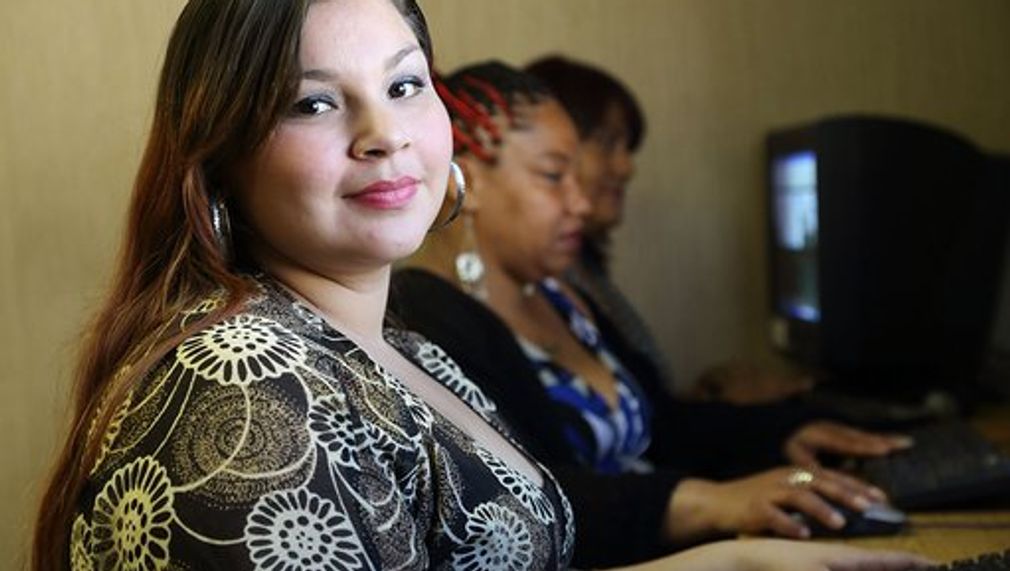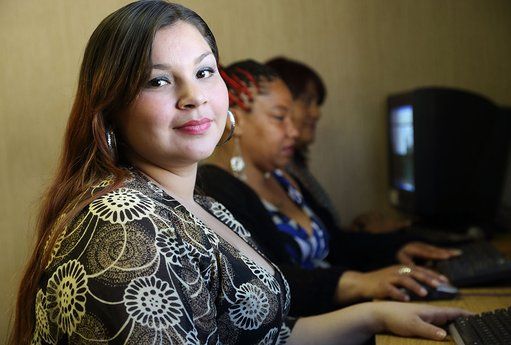Prototypes
Prototypes helps women overcome the disease of addiction while also addressing co-occurring mental illness and trauma with comprehensive approaches that involve the entire family to end the intergenerational cycle of addiction, abuse and poverty.
Visit this organization’s website to learn more

3 Submitted Ideas
 LIVE ·2015 Grants Challenge
LIVE ·2015 Grants ChallengeThe Impact of a Second Chance: An Innovative Women’s Prison Diversion Program

To address the skyrocketing rates of incarceration for women who suffer from substance use disorders, LA County developed the Second Chance Women’s Re-entry Court (WRC) program as an alternative. WRC provides behavioral health treatment, helps women unite with their children and provides practical solutions like job training, parenting and life skills to help women become self-sufficient. Prototypes proposes to expand services to include additional mental health and psychiatry services.
 LIVE ·2014 Grants Challenge
LIVE ·2014 Grants ChallengePrototypes: Integrated Health Care for Women and Their Children
The Pomona Women’s Center is a residential treatment program, serving as lifeline to women impacted by addiction, mental illness and trauma.
- 2013 Grants Challenge
Inspiring Healthy Futures

Most low-income mothers seeking treatment for addiction, mental illness and domestic abuse face a heartbreaking choice: give up their children to a guardian or foster care and get help, or stay with their families and continue to suffer. Prototypes provides Los Angeles’ most vulnerable women and children access to behavioral healthcare and social services to ensure they can become healthy, independent and productive community members. Prototypes’ LA 2050 project is to ensure the robustness and sustainability of our children’s services. Prototypes’ children’s services are critical to the mother’s success and allow for Prototypes to tackle the intergenerational cycle of addiction, abuse and poverty. Children of addicted parents are the highest risk group to become alcohol and drug abusers, and studies have also shown that children with mothers with mental illness are at increased risk for psychological problems as well as alcohol and drug problems. Of the children who arrive at Prototypes, 56% of them suffer from developmental delays, hyperactivity or difficulties with attachment, and 71% of them have witnessed violence in their home or community. Prototypes was founded to fill the gaps left by traditional social service organizations and has pioneered the way to treat complex issues including homelessness, co-occurring substance use and mental health conditions and trauma by allowing mothers to stay with their children through recovery – and by providing a safe, comfortable environment for women and children to receive treatment for all of these issues in one location. A majority of clients have multiple physical and mental health needs, including chronic diseases such as HIV/AIDS. Therefore, Prototypes’ programs reflect these multiple needs by including rehabilitative, educational and vocational services along with life-skills training. In fact, Prototypes’ programs were the first of their kind to offer wrap-around services within a single location to ensure that women who complete the program are strong, self-sufficient and able to care for and support their children. Pregnant and post-partum women receive specialized support, treatment and access to pre- and post-natal care, and children receive a vast array of services including individual and children’s group therapy, onsite childcare and a Head Start preschool as well as pediatric care to ensure their best start at life. This holistic approach to treatment enables Prototypes to serve extremely high-risk women and children with equally high success rates. One of the most high-risk populations that Prototypes serves is women within the criminal justice system. This work started with the addition of Prototypes’ Community Prisoner Mother Program to provide residential substance abuse treatment services to California State inmates. The Community Prisoner Mother Program, in partnership with the California Department of Corrections and Rehabilitation, is truly a unique residential treatment program and provides comprehensive treatment with the goal of preparing inmate mothers and children for successful reintegration into their community. Respecting their important roles as mothers, Prototypes assists in reuniting mothers with their children and preventing separation of mothers and their infants at birth. As Los Angeles looks toward a healthier 2050, today’s children determine the future status of the health indicator. Integrating children into their mother’s treatment, and providing these children with physical and mental health services, reduces their risk of future problems with substance abuse, mental illness, and criminal justice involvement and keeps them out of the child welfare system. Keeping mothers and children together also plays a significant role in helping women maintain a sense of hope and determination as they proceed through treatment. Notably, mothers who receive family-centered treatment have increased rates of post-treatment sobriety. Ultimately, supporting both mother and child together strengthens their bond and ends the intergenerational cycle of addiction, abuse and poverty. Health is a critical component in determining a persons’ overall living condition. Providing critical services to children as early as possible ensures a healthier outcome with reduced risks of physical, mental and emotional health problems, including chronic diseases. And, while Prototypes’ children’s services help improve the health of Los Angeles, they also impact other indicators including education, public safety and income and employment. Preventing future health risks and providing a child a safe home enables them to continue their education, which, in turn, reduces the chances of crime-related activity and keeps them on the path of higher education and employment. While Prototypes’ services aim to address the current health needs of uninsured and vulnerable women, these services also ensure future generations’ health and safety.